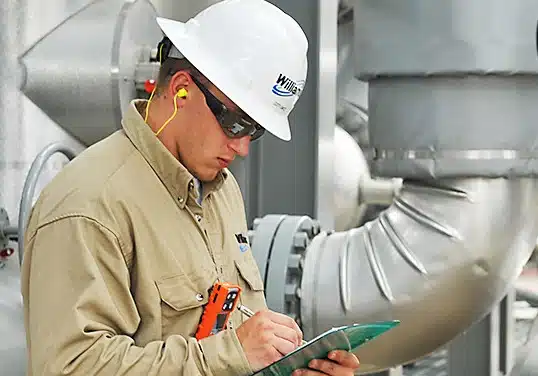API Integrity Management Inspections are essential for ensuring the safety and reliability of equipment and structures, particularly in the oil and gas industry. API stands for the American Petroleum Institute, which sets standards for various aspects of these inspections.
Integrity management involves regularly inspecting and maintaining equipment to prevent failures and ensure everything operates safely and efficiently.
Key Components of API Integrity Management Inspections
1. Regular Inspections:
• Visual Inspections: Looking at the equipment to spot any obvious signs of damage or wear.
• Non-Destructive Testing (NDT): Using techniques to check for issues without damaging the equipment. This can include methods like ultrasound, radiography (X-rays), and magnetic particle testing.
2. Monitoring:
• Keeping an eye on the equipment’s performance and any changes over time. This might include measuring temperature, pressure, or corrosion rates.
3. Data Analysis:
• Collecting and analyzing data from inspections and monitoring to identify trends and potential problems before they become serious.
4. Risk Assessment:
• Evaluating the likelihood and potential impact of different types of failures. This helps prioritize which parts of the system need the most attention.
5. Maintenance and Repairs:
• Performing necessary maintenance or repairs based on the findings from inspections and monitoring. This ensures that any issues are addressed promptly to prevent failures.
1. Visual Inspections:
• A technician walks along the pipeline, looking for any visible cracks, rust, or leaks.
2. Non-Destructive Testing:
• Using a handheld ultrasound device to “see” inside the pipe, checking for internal cracks or weak spots without cutting it open.
3. Monitoring:
• Sensors attached to the pipeline continuously measure the pressure and temperature of the oil inside.
4. Data Analysis:
• The data from sensors and inspections is collected and reviewed to find any patterns, like a gradual increase in pressure, which could indicate a blockage forming.
5. Risk Assessment:
• Analyzing which parts of the pipeline are most likely to fail and what the consequences would be, helping decide where to focus maintenance efforts.
6. Maintenance and Repairs:
• If the ultrasound device finds a weak spot, the section of the pipe might be reinforced or replaced before it fails.
API Integrity Management Inspections help ensure that oil pipelines, refineries, and other critical infrastructure remain safe and avoid costly accidents and downtime.

